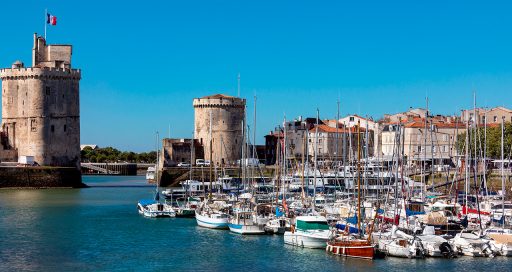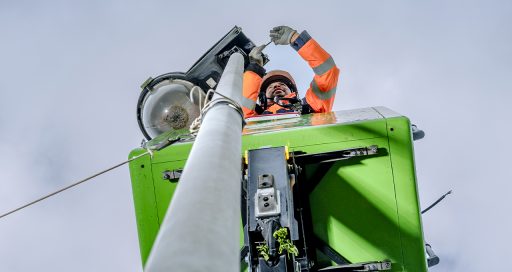Net zero emissions by 2040: this ambitious project for the city of La Rochelle, on France’s Atlantic coast, is based on the Terreze data platform, a unique package with a technical core developed by Citeos.

The “La Rochelle Territoire Zéro Carbone” (LRTZC) project is one of 24 prize-winning initiatives from the call for expressions of interest entitled “Territoires d’Innovation”, launched by Banque des Territoires (Caisse des Dépôts) in November 2018. La Rochelle is keen to accelerate environmentally aware change for its 28 towns, 167,000 residents, 12,200 companies and 70 km of coastline, and has set ambitious targets: to reduce its carbon footprint by 30% by 2030 and to become the first French urban region to achieve carbon neutrality in 2040. This programme is underpinned by a provisional budget of €82 million, including €7.7 million in government subsidies from the Future Investment Programme (PIA).
The LRTZC project was designed from the outset as part of the region’s digital strategy. A pioneer in the field of data accessibility, La Rochelle committed in 2012 to a policy of opening up public data on opendata.agglo-larochelle.fr. In 2016, the city adopted a digital strategy based on three main ideas: continuous, sustainable, eco-friendly innovation; joint construction of projects and participative governance; and data management that respects personal rights.
The same principles applied to the design of Terreze, the data platform dedicated to the management, communication and analysis of decarbonisation efforts across the entire region. With a budget of €4.7 million over six years, this key digital brick was entrusted to three companies: Citeos for the technical core; Onepoint for front office functions; and Citeos/FieldBox.ai for use cases.
Three major objectives
The platform aims to fulfil three major objectives. It must first produce, collect, and make judicious, reasonable use of the region’s data to guide its carbon trajectory in various areas such as energy, mobility, industrial ecology and waste recovery in order to observe, make decisions and act more effectively. Based on all this data in diverse formats (figures, maps, satellite images, etc.), it will be able to produce guidelines and create dashboards to enable data-led management of this region-wide project.
“To guide its regional zero-carbon strategy, La Rochelle has created a data platform built around an open, energy-efficient and responsible core.”
Another function of Terreze is to monitor indicators and optimise the decision-making tools for the governance and innovative business models to be implemented. Lastly, the platform is designed to support the opening up of data from all stakeholders in a policy of regional data pooling for a responsible digital approach.
General-interest public service
“To achieve these objectives, we must be able to inventory regional data and create a space for debate and decision-making to identify, support and promote innovative new uses with high added value,” says Latifa Noamen, a project manager at Citeos, the French VINCI Energies unit specialising in innovative solutions for towns and cities. “But we must also consider issuing this data as a new general-interest public service accessible to all regional stakeholders (individuals, associations, businesses, institutions), while ensuring compliance with common rules based on ethics and respect for privacy.”
Data will therefore be verified, processed and anonymised. Once stored under licence and smart contracts to ensure security and confidentiality, the data can be mined and shared.
Backed by the city and region of La Rochelle, LRTZC will tap into a consortium of regional stakeholders, such as the University of La Rochelle, Port Atlantique de La Rochelle, Cerema, Atlantech, Ifrée and the LPO. They are joined by a range of other contributors and financial backers, including the Nouvelle-Aquitaine region, Banque des Territoires, ADEME, Chamber of Commerce and Industry, INRAE, ENEDIS, and CEA. In total, some thirty institutions, businesses and associations are involved, with the aim of including the platform in the design brief for AFAQ Eco-design certification (“Exemplary” level).
The Terreze platform also embodies the LRTZC project’s values. It was eco-designed based on technical and functional components that are open, energy-efficient, secure, accessible, modular, and in terms of data use, transparent, secure and respectful. The aim is to build a trust relationships between the region and its people by respecting and protecting their personal data.
“Terreze is not only unique in the completeness of the information analysed, digested and reissued. The tool was also designed with a focus on energy conservation. Its carbon footprint is one of the performance indicators for the overall project,” explains Latifa Noamen. Currently in a trial phase with a group of beta testers, the platform will be made available to the public in 2024.
17/07/2023


